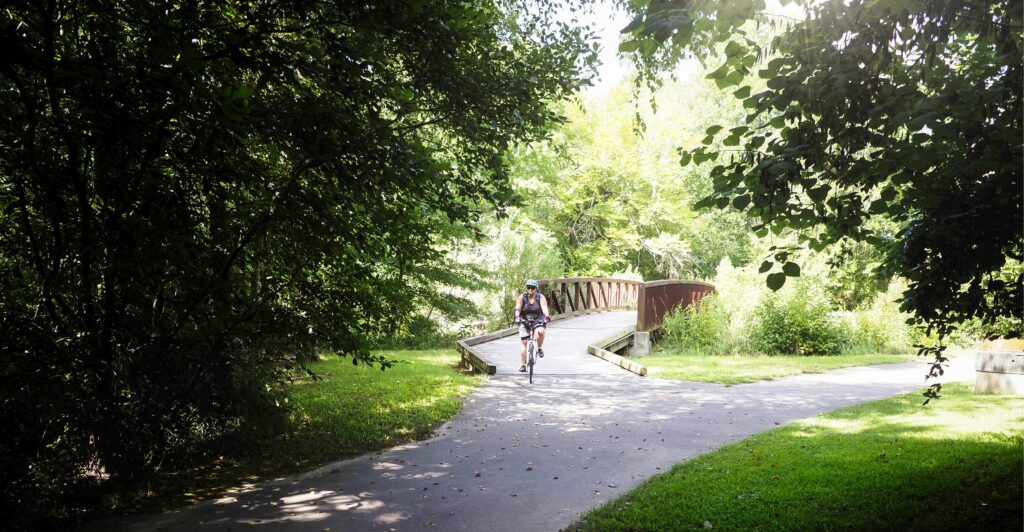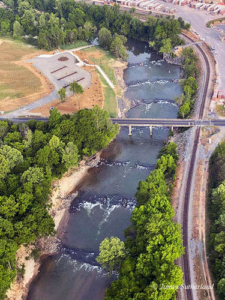Highlighting Resources for Local Park Funding Opportunities
go.ncsu.edu/readext?970070
en Español / em Português
El inglés es el idioma de control de esta página. En la medida en que haya algún conflicto entre la traducción al inglés y la traducción, el inglés prevalece.
Al hacer clic en el enlace de traducción se activa un servicio de traducción gratuito para convertir la página al español. Al igual que con cualquier traducción por Internet, la conversión no es sensible al contexto y puede que no traduzca el texto en su significado original. NC State Extension no garantiza la exactitud del texto traducido. Por favor, tenga en cuenta que algunas aplicaciones y/o servicios pueden no funcionar como se espera cuando se traducen.
Português
Inglês é o idioma de controle desta página. Na medida que haja algum conflito entre o texto original em Inglês e a tradução, o Inglês prevalece.
Ao clicar no link de tradução, um serviço gratuito de tradução será ativado para converter a página para o Português. Como em qualquer tradução pela internet, a conversão não é sensivel ao contexto e pode não ocorrer a tradução para o significado orginal. O serviço de Extensão da Carolina do Norte (NC State Extension) não garante a exatidão do texto traduzido. Por favor, observe que algumas funções ou serviços podem não funcionar como esperado após a tradução.
English
English is the controlling language of this page. To the extent there is any conflict between the English text and the translation, English controls.
Clicking on the translation link activates a free translation service to convert the page to Spanish. As with any Internet translation, the conversion is not context-sensitive and may not translate the text to its original meaning. NC State Extension does not guarantee the accuracy of the translated text. Please note that some applications and/or services may not function as expected when translated.
Collapse ▲Written by Emily Prickett, Parks, Recreation and Tourism Major
The Parks and Recreation Trust Fund (PARTF) exists to support local governments reach goals or serve communities through protecting park lands and building facilities (Parks and Recreation Trust Fund). These funds, annually allocated by the North Carolina General Assembly, enable the governments to begin, continue or update parks and recreation facilities that contribute to their vision. Communities can utilize a statewide technical assistance program, Recreation Resources Service (RRS), whose consultants provide guidance and expertise throughout the grant application process. These services (RRS) are made possible through a partnership with the North Carolina Department of Natural and Cultural Resources and the Department of Parks, Recreation, and Tourism Management of North Carolina State University (Recreation Resources Service). With the help of RRS, governments’ projects are evaluated based on a number of categories such as quality of planning, public involvement in the planning process, recreation facilities provided, quality of site with respect to its surroundings, quality of park land to be acquired, and the applicant’s ability to operate and maintain the park project. Projects are selected by a nine-member board, the Parks and Recreation Authority, granting up to $500,000 to be used on the specific project.

Photo by Marc Hall
Since 2020, PARTF funding has supported 75 projects over $24 Million to local governments to carry out their projects improving quality of life for these communities (as of 9/28/2023). Additionally, this builds trust between the different departments of the local government involved (e.g., departments of parks and recreation and tourism development authorities). Overall, these funds have a large impact which has only grown over the years since its first distribution in 1994 with a total amount granted to date totaling over $235 million. Lists of the recipients of these grants are published to show this expansive impact of PARTF on communities around the state (Annual Report 21-22).
One funded project, on the coast of Brunswick County’s Ocean Isle Beach recently received a PARTF grant to fund renovations to the preexisting park facilities along with new areas such as a Tot Lot Playground and Fitness Stations. With the expansion of the town Center Park, the parks and recreation department of Ocean Isle aimed to make their beach a more welcoming and enjoyable place and serve their communities and tourists more inclusively and effectively (Center Park Expansions).

Madison River park with new waterfall system. Photo source: madisonriverpark.com
Another funded project, Madison River Park is a more nature-focused park. However, it is also being utilized as a resource for a tourism attraction in Rockingham County, more specifically the Town of Madison. As a smaller town on the North Carolina-Virginia line, the leaders of the project feel the increase in recreational activities would bring more visitors. The river used to be stopped by the Lindsey Bridge Dam. When damage and possible failure were visible in the dam, the Town of Madison decided to replace it with a series of waterfalls that enhanced the original function. The key they found to receiving funds for the project was focusing their efforts on the conservation of the living environment of the river. They discovered that an endangered species of fish was negatively affected by the dam, and this provoked the attention of many agencies including the Wildlife Resources Commission, US Fish & Wildlife Service, Duke Energy, and others. Alongside this support, the PARTF grant was given for their conservation efforts and goal of better serving the communities and tourists. This project was completed May 21, 2021 and has been fulfilling its purpose since (Madison River Park).
Most recently, the City of Lowell has received funding from a PARTF grant of $500,000 for the Harold Rankin Park Revitalization efforts. As the most used park in the city, the community agreed it needed help with updating facilities to comply with ADA/ABA standards and providing more facilities for new recreation trends. Thus, as funding is available, different phases of the project will be put in motion. Some of the key changes in the first phase include the addition of pickleball courts, a nature trail, and a universally inclusive playground (Harold Rankin Park). Ultimately, they are looking to improve the quality of the park in order to better serve the community that surrounds it.
In the fiscal year of 2021-2022, over $19 million was distributed for North Carolina Parks and Recreation Trust Fund Matching Grants for local governments. Now is the time to apply! The application cycle began in October and is open until May 1, 2024. In order to find your RRS consultant to discuss project ideas, visit the website to see which region you are in and reach out to your consultant (RRS Consultant). Your local community matters, and the Division of Parks and Recreation and RRS are here to support you.


